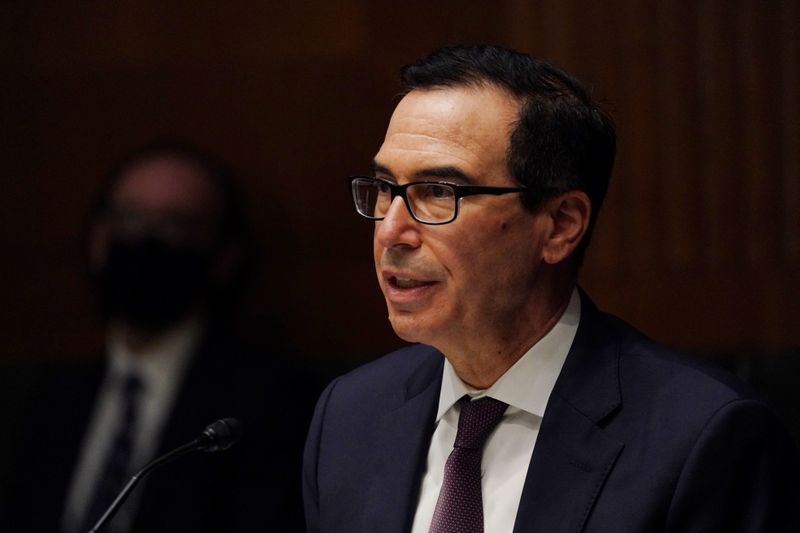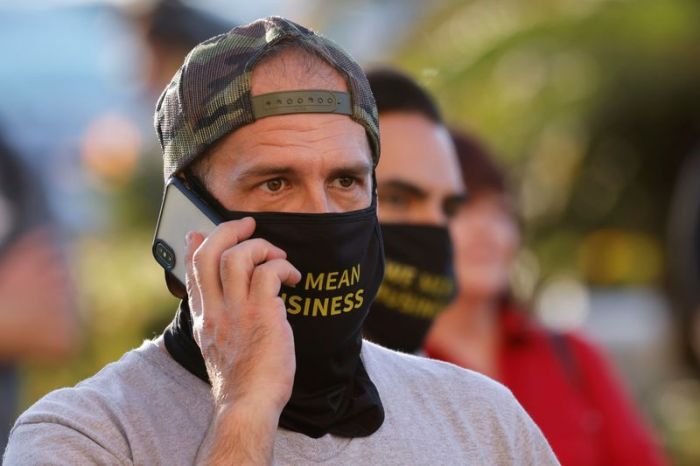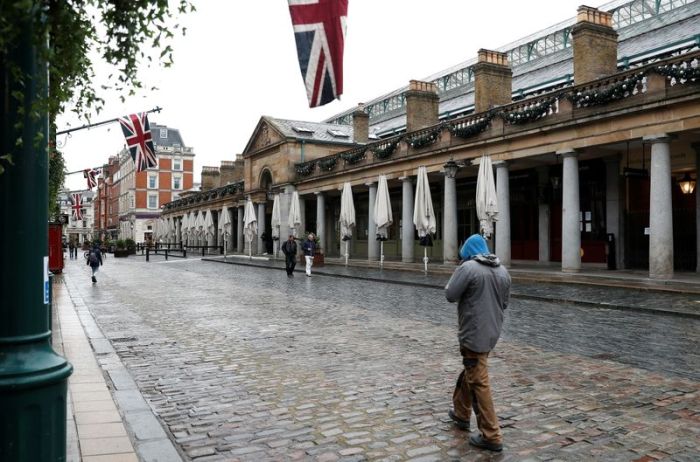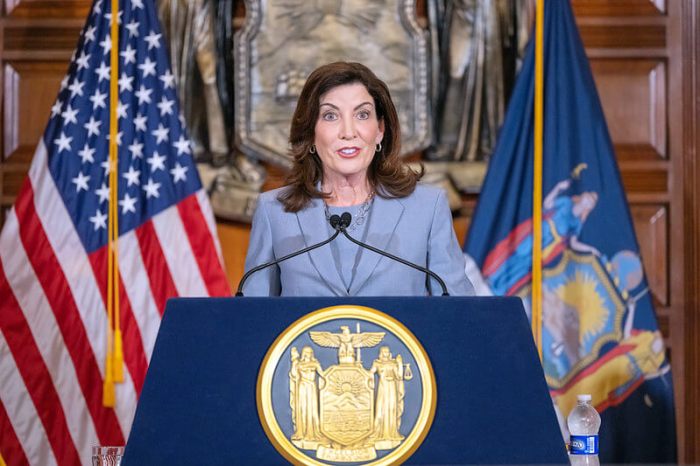WASHINGTON (Reuters) – U.S. Treasury Secretary Steven Mnuchin’s decision to de-fund several Federal Reserve coronavirus lending programs on Dec. 31 is “deeply irresponsible,” President-elect Joe Biden’s transition team said on Friday, and threatens to undermine the country’s fragile economic state.
Ending support for Fed programs that “could be used for small businesses across the country when they are facing the prospect of new shutdowns is deeply irresponsible,” Biden’s camp said in a statement.
“At this fragile moment, as the COVID and economic crises are re-accelerating, we should be reinforcing the government’s ability to respond and support the economy – not undermining it.”
Mnuchin surprised Fed officials on Thursday by demanding the return of unused funds set aside to support Fed lending to businesses, nonprofits and local governments.
The United States faces a third wave of the coronavirus infection that has already killed 250,000, and states and cities are shutting down businesses and schools to stop the spread.
Mnuchin said that the surprise move would not bind the hands of the next Treasury secretary and that grants to firms, more paycheck aid to workers and unemployment compensation were better uses for the $455 billion in already borrowed funds.
The next administration would still have an $800 billion “bazooka” to quell financial market distress, he said.
Federal Reserve Chairman Jerome Powell and Chicago Federal Reserve Bank President Charles Evans have criticized the Treasury move, saying the programs due to lapse – while little used – provided an important backstop for the economy. They include the Main Street Lending Facility for mid-size businesses, a municipal bond facility and others supporting corporate credit and asset backed securities markets.
“I think that backstop role may be quite important for quite some time so it’s disappointing,” Evans said on CNBC. “The virus spread is increasing and so there are risks from that … it would be good to have more support coming from all directions.”
Powell said in a letter to Mnuchin later on Friday that the Treasury chief had “sole authority” over the facilities’ futures and said he would make arrangements to return unused funds to the Treasury.
NO HINDRANCE
Mnuchin said Congress had always intended for the lending programs to end on Dec. 31, and sought to reassure markets that the Fed and Treasury had many tools left to support the economy.
Use of the funds elsewhere limits the options for the incoming administration of Democratic President-elect Joe Biden to backstop financial markets after he takes office on Jan 20.
But Mnuchin denied it was intended to handicap his successor and said his department would work closely with the incoming administration “if things get certified” – a reference to President Donald Trump’s legal challenges to election results.
A senior Treasury official later told Reuters that up to $600 billion in cash would be available from repurposing Fed loan funds, unused money from aid for airlines and defense firms as well as $130 billion left over from the Paycheck Protection Program.
Mnuchin said he and White House Chief of Staff Mark Meadows would speak with congressional Republican leaders and would redouble their efforts to pass further stimulus measures.
Senate Republican leader Mitch McConnell backed Mnuchin’s decision, as did some other Republican senators.
“Congress should repurpose this money toward the kinds of urgent, important, and targeted relief measures” Republicans have been advocating, McConnell said, without mentioning any of the initiatives Democrats have been seeking in new legislation.
Democrats were sharply critical of the clawback. Massachusetts Senator Elizabeth Warren called the Treasury move “blatant sabotage” on Friday evening.
Unclear is whether the influx of cash would prompt McConnell to seek to reduce the size of newly appropriated coronavirus aid funds. He had previously advocated a new spending package of about $500 billion, far less than the $2.1 trillion sought by House of Representatives Speaker Nancy Pelosi and Democrats.
(Reporting by Andrea Shalal, David Lawder, Heather Timmons and Richard Cowan in Washington, Michael Martina in Detroit and Ann Saphir in San Francisco, writing by David Lawder; Editing by Chizu Nomiyama and Grant McCool)
























